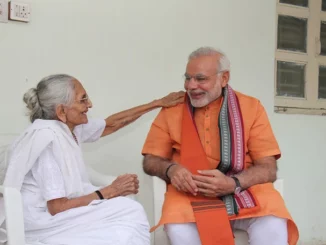
New Delhi (TIP)- The Supreme Court on Thursday, Jan 20, said that reservation for backward classes is not at odds with merit but furthers its distributive impact while upholding the 27 per cent quota for Other Backward Classes (OBC) in the National Eligibility cum Entrance Test (NEET) undergraduate and postgraduate medical admissions (all-India quota). On January 7, a bench of Justices D Y Chandrachud and A S Bopanna in a brief order upheld the constitutional validity of the OBC reservation and approved for the current admission cycle, the Rs 8 lakh annual income limit set for identifying those eligible for the quota for Economically Weaker Sections (EWS). The court had then said that it would soon come out with a detailed order giving reasons for its decision.
In the detailed order pronounced Thursday, the bench said that competitive exams do not reflect the economic social advantage accrued to some classes over a period of time and that merit should be socially contextualised.
“Articles 15(4) and 15(5) are facets of substantive equality. Competitive exams do not reflect (the) economic social advantage which is accrued to some classes. Merit should be socially contextualised. Reservation is not at odds with merit but furthers its distributive impact,” the court said.
Upholding the Centre’s decision to allow the quota, the court said that the government was not required to seek its permission before granting reservation in the all-India quota seats and its decision was therefore correct.
Pointing out that any intervention by the court would have further delayed the admission process for the current year, the bench said that judicial propriety would not permit it to stay the quota when the counselling is pending, especially when constitutional interpretation is involved. The court underlined the dire need to have more doctors working in hospitals given the Covid-19 pandemic situation and said that any change in the eligibility qualification would have delayed the admission process and led to cross litigation.
The court will hear the question of the EWS reservation in detail in the third week of March.
Petitioners in the matter had challenged the July 29, 2021 notification of the Medical Counselling Committee (MCC) providing 27 per cent reservation for OBCs and 10 per cent quota to the EWS category in the NEET UG and PG (all-India quota) admissions. Hearing the petitions, the Supreme Court had asked the Centre to explain what exercise it had undertaken to arrive at Rs 8 lakh criteria. Responding to this, the Centre told the court on November 25, 2021, that it would revisit the criteria and sought four weeks to complete the exercise. Subsequently, the Centre appointed a three-member committee comprising former finance secretary Ajay Bhushan Pandey, member secretary ICSSR V K Malhotra and principal economic advisor to the Indian government Sanjeev Sanyal.
The committee submitted its report on December 31 recommending that the Rs 8 lakh limit which has continued since 2019 be retained, but suggested some changes to how to apply the same.
It also favoured continuing with the existing system as the admission process was already on and that if disturbed at the end or fag-end of the process, it would create more complications than expected both for the beneficiaries as well as for the authorities.
The petitioners opposed the recommendation saying the report was an admission that the government had not conducted any study before fixing the Rs 8 lakh limit for the EWS in 2019.





Be the first to comment